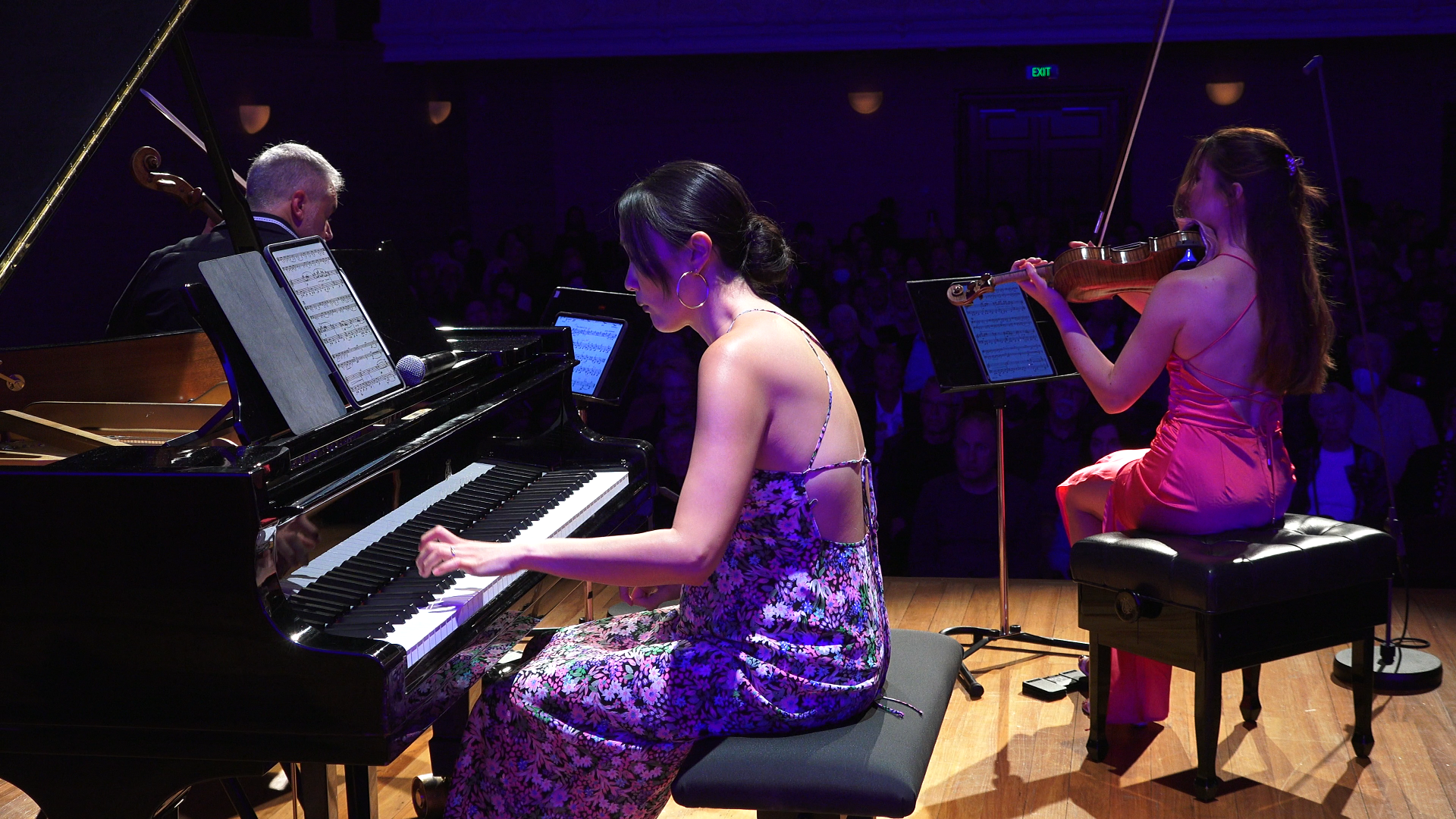NZTrio has always enjoyed rescuing lesser-known scores from the nooks and crannies of musical history.
William Dart – NZ Herald
NZTrio has always enjoyed rescuing lesser-known scores from the nooks and crannies of musical history.
Its latest concert opened with one of its best finds yet, a charming Phantasie by John Ireland. Written in 1909, this short work seemed more a blend of late romantic and modal styles than impressionistic, as cellist Ashley Brown suggested in his genial introduction.
It certainly gave guest violinist Manu Berkeljon and Brown many opportunities for sweet harmonising, while Sarah Watkins’ piano boldly navigated her colleagues through lush climaxes.
The contrast between the two New Zealand commissions could not have been more marked. Anthony Ritchie’s Childhood set off placidly on white keys, its artless reel darkening as the piece progressed, most effectively when fiercer dissonance combined with dramatic rhythmic changes.
Dorothy Ker’s Onaia was an attempt to capture the energies of the Bay of Plenty stream. Resourceful sound effects, catching eyes as well as ears, made for spasmodic and fragmented textures, the most cohesive moments coming with denser musical foliage.
After interval, there was a sense of celebration in Schubert’s E flat major Trio, right from its resolute opening unison, and the musicians sustained its sometimes rambling architecture very convincingly.
Emotions were effectively underplayed in the Andante con moto and, after some playful musical tag in the scherzo, the finale was an enchanted melodic wonderland.

